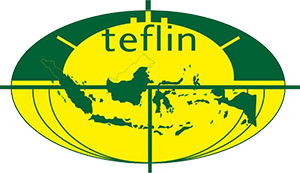Investigating the Implementation of Process Approach to the Teaching and Learning of Writing Skills: The Case of Ethiopian University
Abstract
The purpose of this study is to investigate the implementation of process approach to the teaching and learning of writing skills at one of Ethiopian University. The research employed descriptive research design with mixed approach to data gathering and analysis. While qualitative data were analyzed using thematic analysis the quantitative data were analyzed using a descriptive SPSS analysis. The subjects of the study were both 1st year 5 male and 15 female and 2nd year 5 male and 8 female totally 33 undergraduate English as a foreign language students and their 2 writing skills instructors. This was because 1st year undergraduate English as foreign language students take the writing course i.e. Basic Writing Skills and 2nd year undergraduate English as foreign language students take the writing course i.e. Advanced Writing Skills and they were selected by using comprehensive sampling technique. The researchers used classroom observation, questionnaires and semi-structured interview as instruments to collect relevant data. The results of the analysis showed that, instructors did not always focus on the process approach while they deliver the writing lessons and activities; instead they mainly use the product approach in conducting the lessons. There were also factors like, lack of additional material sources, the correction limitation of students’ written works and students’ inability to express themselves’ in the target language that hindered the implementation of the process approach of teaching writing skills.
Keywords
Full Text:
PDFReferences
Darus,S and Subramaniam, K. (2009). Error Analysis of the Written English Essays of
Secondary School Students in Malaysia: A Case Study. European
Journal of Social Sciences.
Dornyei, Z. (1996). Motivational strategies in the language classroom. Cambridge: Cambridge
University Press.
Gaber, A. (2003). The Effectiveness of a Suggested Program Based on the Whole Language
Approach in Developing Student- Teachers' Essay Writing Skills.
Unpublished M.A Thesis. Ain Shams University.
Geremew, L. (1999). A Study on the Requirements in Writing for Academic Purposes at AAU:
Four Departments in Focus. Unpublished PhD Dissertation. AAU.
Griffiths, C. (2008). Lessons from Good Language Learners. Cambridge: CUP.
Hedge,T.(2005). Writing. Oxford: Oxford University Press.
Hyland, K. (2015). Teaching and Researching Writing. London: Routledge.
Jarvis, H. (2005). Computer-based Materials in EAP: History, Trends and Issues. In B. Beaven
(Ed.) IATEFL 2005 Cardiff Conference Selections. Canterbury: IATEFL.
Kothari, R. C. (2004). Research Methodology: Methods and Techniques. (2nd Ed.). New
Delhi: New Age International (P) Ltd.
Leo, S. (2007). English for Academic Purpose: Essay Writing. Yogyakarta. Cv Andi Offset.
Manchón, R. (2012). L2 writing development: Multiple perspectives. (Vol. 6). Boston: Walter
de Gruyter.
Nunnan, D.(1999). Designing Tasks for Communicative Classrooms. Cambridge: CUP.
Reid, J. (1993). Teaching ESL Writing. Englewood Cliffs, NJ: Prentice-Hall Regents.
Richards, J.C. and Renandya, W.A. (2002). Methodology in Language Teaching: An Anthology
of Current Practice. Cambridge, UK: CUP.
Robinson, A. (2016).The Origins of Writing. In D. Crowley & P. Heyer (Eds.), Communication
in History: Technology, Culture, Society. (Sixth Ed.). New York: Routledge.
Smalley, R. L., Reutten, M. K. & Rishel, O. (2001). Refining Composition Skills: Rhetoric and
Grammar for ESL Students. New York: Macmillan Publishing Company.
DOI: http://dx.doi.org/10.21043/jetli.v5i1.13649
Refbacks
Copyright (c) 2022 Journal of English Teaching and Learning Issues







